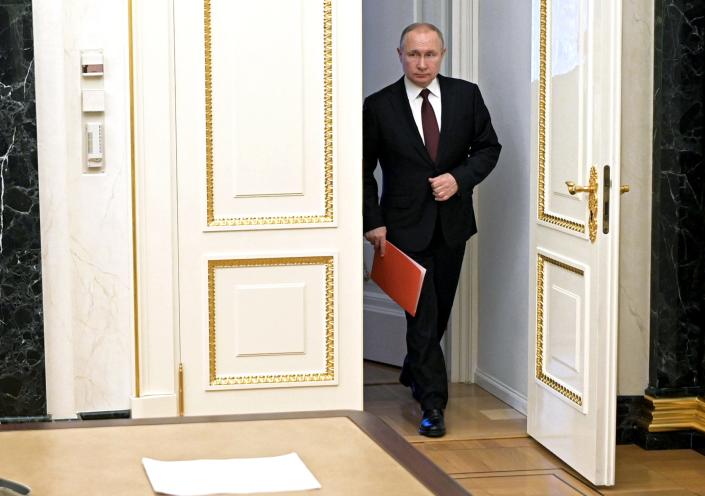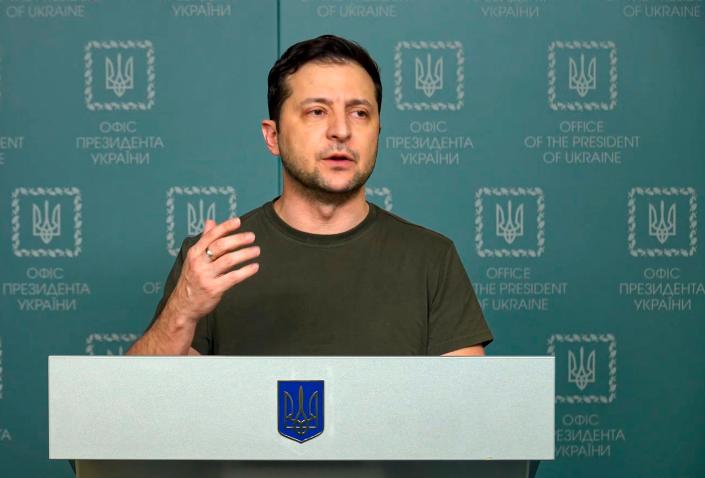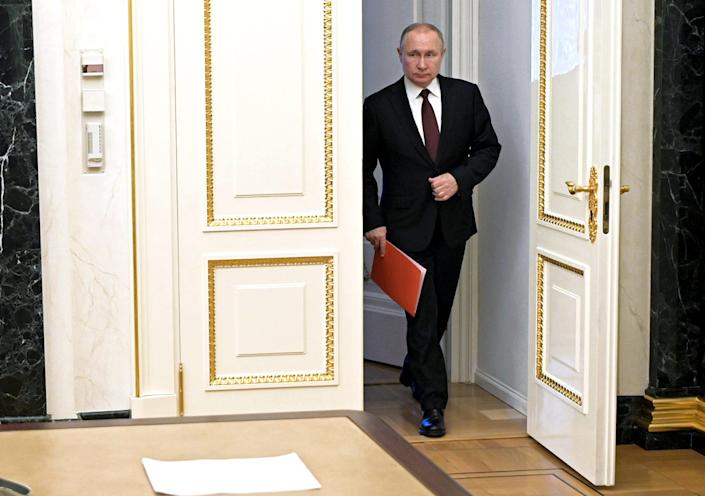The story of Ukraine’s heroic struggle against the brutality of Vladimir Putin and the Russian military has captivated the world’s attention because it contains within it elements of almost every story we tell in an effort to make sense of this world.
Good vs. evil. Courage vs. cruelty. David vs. Goliath. Truth vs. lies. Order vs. anarchy. The past vs. the present.
It is also compelling because at every turn so far it has confounded conventional wisdom and undone the assumptions of both the powerful and pundits.
Wrong assumptions on Ukraine and the West
Many, including Putin, wrongly assumed the West would not come together to stand up to his threats. As he did, they predicted that the United States, in retreat since the catastrophe of Iraq and bitterly divided politically, would be too weak to effectively assume the role of leader. As he did, they anticipated that Ukraine would be unable to resist the onslaught of Putin’s massive, vaunted armed forces.
Inside a war: ‘If we need to we will die here’: Life in Ukraine as Russian forces assault Kyiv, Kharkiv
Surely, Volodymyr Zelenskyy, a former comedian and TV actor, would be no match in a battle on the global stage with Russia’s canny, seasoned dictator. How could the people of Ukraine possibly endure the Russian onslaught, much less stand up to it, leaving Russian tanks and convoys in heaps of smoldering, twisted steel alongside Ukrainian roads?
When Putin sat in his stark white offices, who could imagine that somehow his rambling, demented address describing the glories of a Russian history that never happened could be outdone by Zelenskyy’s own much briefer, simpler, more human address on the eve of war or, for that matter, by camera phone video clips of Zelenskyy sipping coffee with his troops?
Who would win a confrontation between a little old lady with a handful of sunflower seeds and a belligerent Russian soldier?


Admittedly, we are only a few days into this war, but already it is possible to imagine the unthinkable. There are several paths to victory for Ukraine. There are almost no imaginable paths by which Putin and Russia will have anything like a real triumph. Certainly, Russia could achieve the battlefield wins that have largely eluded them. And on Sunday, Putin put his nuclear forces on alert, raising the stakes not only for Ukraine but for the entire world.
Making a hero: ‘I need ammunition, not a ride’: Zelenskyy is the hero his country needs as Russia invades
But Putin would not have played the nuclear card had the war been going well. Clearly, he is feeling heat he did not expect to have to endure – from Ukraine’s armed forces, from its people, from the TikTok war for public opinion in which Ukraine is clearly dominating, from his own people disgusted with his war, from Western sanctions and from his dwindling avenues for success.
The one scenario that Putin feared most when he invaded Ukraine was a protracted war against an energized Ukrainian insurgency. As it turns out, that might now be the best case scenario for him. Neither the people of Ukraine nor those of the world, outraged by Putin, will let him install a puppet regime and try to turn Ukraine into another vassal state like Belarus and just leave it at that. The struggle will endure.
On the other hand, it is now not impossible that Ukraine could continue to resist the Russians on the battlefield and deny them the ability to take Kyiv and depose the government.
Examining Putin: Vladimir Putin’s biography makes this dictator, and the Ukraine war, especially dangerous
They may not be able to do that indefinitely. But they may be able to do it long enough for tough sanctions on Russia to combine with growing outrage at the war and produce domestic unrest and pressure in Russia (and from his sanctioned oligarch buddies) that Putin has to sue for peace.
Talks are already being discussed. But where Putin once expected to be able to dictate terms to Ukraine about staying out of NATO and permanently disarming, that is unlikely to be where the Zelenskyy government ends up.


What defeat will Russia negotiate?
The war could rage on, of course. Putin could continue to be irrational. He could continue to rattle that nuclear saber. But, because nuclear threats only underscore how dangerous Putin is, Western pressure on him is likely to grow stronger.
On Sunday, Germany announced a commitment to increase defense spending to more than 2% of gross domestic product a year. Germany, like other Western nations, are sending more weapons to Ukraine. New sanctions – blocking many Russian financial institutions from the use of the SWIFT global financial clearing system, isolating the Russian central bank – have real teeth and could devastate the already weak Russian economy. More will follow.
For Russia, now, the only question is what sort of defeat they are willing to negotiate. Can Putin keep Crimea? He should not be allowed to. Can the Russians get a deal by which Ukraine renounces any desire to enter NATO? Possibly a short-term one. But that too, frankly, should be off the table.
Indeed, it is unlikely that once the war is over the pain for Putin will stop. He will never again be anything but a pariah. If he is prosecuted for war crimes and wants to avoid jail, he may never again be able to leave Russia.
The damage he has done to Russia’s standing and economy will endure long after this conflict is done. And of course, for him, the worst case scenario now possible is that the war he has waged to force regime change may result in it happening in Moscow rather than Kyiv.
Putin’s only hope is that the West and Ukraine lose their nerve and make the mistakes they have failed to make so far. But that seems unlikely given the way the past few weeks have unfolded.
And it is for that reason that at this moment, if Ukraine and the West maintain their resolve, it is not entirely irrational to think that at least in this one case, good may defeat evil, courage may triumph over cruelty, David may once again beat Goliath, truth will undo lies, order may prevail over anarchy and the world of the past may have to give way to the one of the future.
David Rothkopf is a member of the USA TODAY Board of Contributors, host of “Deep State Radio,” and CEO of TRG Media and podcasting company specializing in public policy issues. Follow him on Twitter: @djrothkopf
You can read diverse opinions from our Board of Contributors and other writers on the Opinion front page, on Twitter @usatodayopinion and in our daily Opinion newsletter. To respond to a column, submit a comment to letters@usatoday.com.
This article originally appeared on USA TODAY: Putin underestimated Ukraine. Russia may punish him for it.




